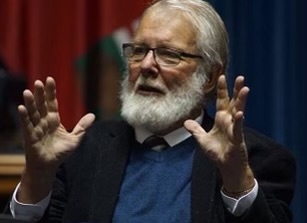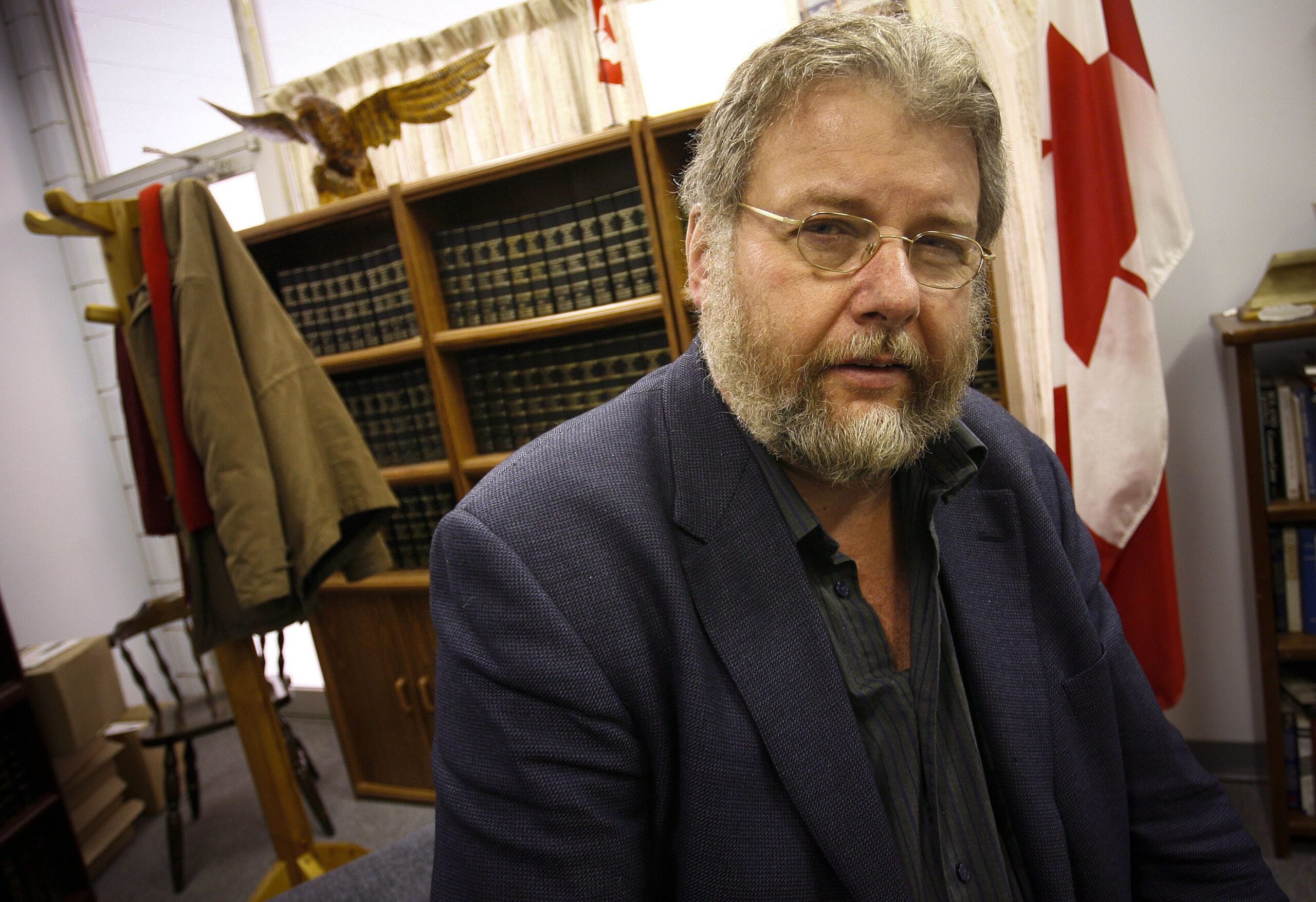In the fall of 2011, Bill Blaikie, recently retired from a three-decade career in electoral politics, stepped up to the pulpit of an Anglican church in Winnipeg and spoke about idolatry.
The idol being worshipped was the market, he said. At one time, the market was kept in its place, but in an era of globalization and free trade, the market had become so ubiquitous that it “threatened to replace all other ways of thinking about what it means to be fully human and what it means to be a fully human community.” The market, Blaikie said, taught that humanity was ruled by the law of competition rather than the law of love found in the biblical tradition. By treating the market as a sacred force beyond our power to change, limit, or control, we had granted it god-like powers.
You may unsubscribe from any of our newsletters at any time.
It’s uncommon to hear an elected politician speak so comfortably in the language of theology, but for Blaikie, who died of kidney cancer last week at the age of 71, politics and theology were inseparable.
Blaikie spent 29 years on Parliament Hill as a New Democrat Member of Parliament (MP) and two years as a cabinet minister in the Manitoba government. He may have been one of Canada’s last great politicians from the social gospel tradition. An ordained United Church minister, he followed in the footsteps of Tommy Douglas, the Baptist preacher who led the New Democratic Party and who introduced Canada’s first universal health care program. Blaikie took the social gospel of the early 1900s—which applied Christian ethics to the evils of poverty, inequality, racism, child labour, and war—and translated it for the more multicultural, pluralistic context of 21st-century Canada, says James Christie, the former dean of the University of Winnipeg’s theology department and a longtime friend and colleague of Blaikie’s.
Daniel Blaikie, an MP for the same Winnipeg riding his father once represented, says his father showed him how to be a person of honesty and integrity in politics. “He did a good job of role modelling what it meant to be a Christian in a post-Christendom context who embraces pluralism but doesn’t see that as diminishing one’s faith,” says Daniel Blaikie.
The younger Blaikie says his father’s vision for a more socially, economically, and ecologically just society was informed by his spirituality. He encouraged others to speak openly about their faith and how it influenced their politics. “Part of what we’re called to do is to live together with love and let our faith inspire us to work through the challenges that arise rather than to let it be a fissure or a wedge,” he says.

Éric Hébert-Daly, head of French ministries for The United Church of Canada, remembers Bill Blaikie as a friend, a mentor, and a politician who knew how to disagree honestly and respectfully with his opponents.
He offered a rare role model of how to live a life of Christian faith and progressive politics, says Hébert-Daly. “I think we [in the church] are sometimes afraid to speak about our faith publicly.” Bill Blaikie’s example is not to be afraid to speak theologically about public life, but to do so in a non-colonial, non-dominating way that celebrates diversity of opinion and belief, he says. “That should be something we model and treasure, and something Bill gave us.”
More on Broadview:
- This social ethicist wants to make Christianity revolutionary again
- How Canadian churches can live out this TRC call to action
- 60 years ago, Canada’s health-care system began amid a storm of controversy
Although Bill Blaikie’s party never formed government during his 29 years as an MP, that didn’t stop him from advocating for policies that made a difference in people’s lives. He helped shape the Canada Health Act, which passed in 1984 and provides a framework for Canada’s public health system. He also successfully campaigned against the mergers of Canada’s largest chartered banks and critiqued corporate free trade agreements that he said put workers and the planet at risk. He was also concerned about climate justice. As Manitoba’s conservation minister, he stewarded the development of five new provincial parks and worked with Indigenous groups to protect the boreal forest on the east side of Lake Winnipeg.
“Conventional wisdom says you have to be in a position of power and authority to make things better for people,” says Daniel Blaikie. “While that can certainly help, I don’t think it’s a prerequisite, and Dad’s life was a testament to that.”
He says his father’s faith naturally put him in the camp of the NDP, a party Bill Blaikie saw as prophetic in the biblical sense of the word: speaking truth to power. He believed a democratically elected government was a mechanism for ordinary people to hold larger powers to account.
“There’s a big nexus of corporate power out there that plays a big role in deciding the world we live in, what’s available to people at what price,” says Daniel Blaikie. “That’s why electoral politics was such an important site of protest and resistance for my dad. That was the site at which regular people could get leverage against the really big guys.”
***
Josiah Neufeld is a journalist and fiction writer in Winnipeg.














